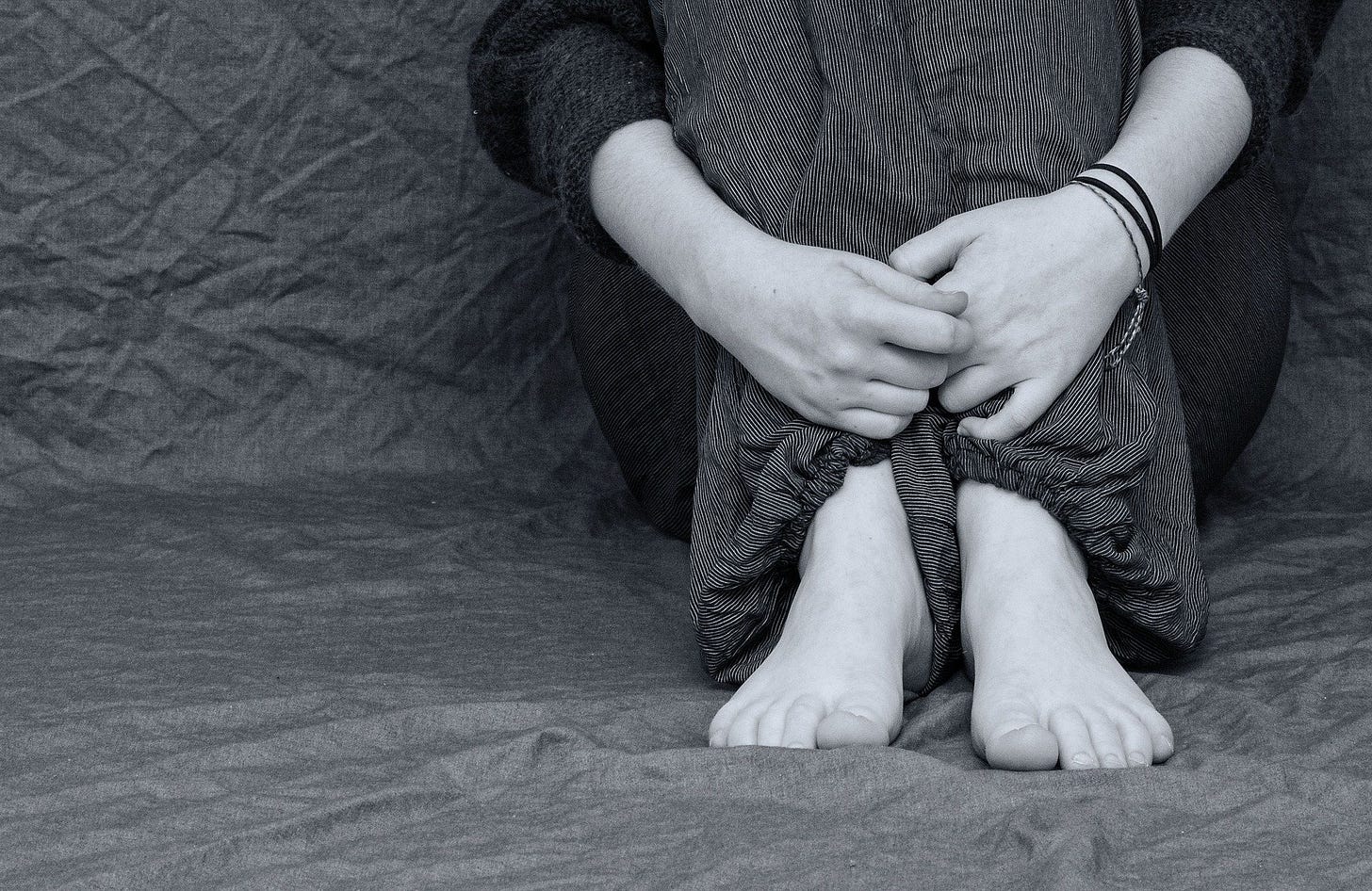A resource I’ve been enjoying in the past year or so is Sanity by Tanmoy, one of the only publications I’ve seen that honestly and incisively deconstructs the current conversation around mental health. Tanmoy is a writer from India, and while he’s not a mental health professional, he is a longtime journalist with both incisive rigor and a passion for revealing his own mental health journey. It’s refreshing, to say the least, to see someone non-Western writing about what has become such a hot topic in recent years, and daring to challenge much of the nonsense inherent in it from that perspective.
A recent development in his site is the featuring of other writers on various mental health topics, and I felt a chill of recognition after reading this piece by Himangi Kanodia on anhedonia1. Anhedonia is a word often used for one of the signal symptoms of depression: loss of interest in things you used to enjoy. It’s not being “sad,” per se; just not happy. Nor angry, nor…anything, really. It’s a lovely word for the unlovely condition of flatness, of greyness, that can overtake the human mind.
The word is related to one most of us are more familiar with: hedonism, or the pursuit of pleasure. The ‘an-’ prefix transforms the word into, simply, “lack of pleasure.” Anhedonia doesn’t necessarily mean you can’t get out of bed, or work, or carry on relationships, although when it’s severe enough, all of those things get a lot harder. But it can mean that none of those things hold a particular appeal. As Kanodia puts it in her account, “it affects my ability to want, to like, to pursue, and to experience the reward in any activity.”
I’ve experienced waves of this throughout my life. Sleeping too long, waking unrefreshed. Planning things to do, only to find myself unable to motivate myself to do any of it. Having big ideas—for a book, a business, a room, a life—and finding myself trapped in a kind of grey misery, where none of it seems worthwhile. Kanodia describes something similar:
I had a hundred ideas about what I could do with my life. I researched them, found experts to consult, and drew out elaborate plans in spreadsheets. I convinced those around me that I was excited about a new business idea. I’d finally found a venture to put my intellect, creativity, and experience to good use. It was reassuring and gave all the pain I’d been through, meaning. This happened a few times before I realised I was sowing the seeds of my future today and weeding them out the next day, both with equal conviction.
I’ve rarely seen anhedonia talked about in such frank terms as Kanodia does in this essay, and it rocked me a bit. So many stories of depression, as she herself notes, are stories of the most acute cases—and often, of their recovery. The kind of chronic, grinding, low-level depression gets a lot less press, and is, I believe, far more common. It’s followed me through college, internships, grad school, various career changes, and right into the present. I feel lucky these days that my clients are so engaging to me; it also helps me show up and be enthusiastic, when I know there are people who are directly counting on me. It’s much more difficult to sustain interest and motivation toward a company, even when the work is interesting.
The full essay, titled Werewolf, is here, and I highly recommend it for another personal perspective on this quietly crushing phenomenon. I’ll be curious if it resonates for others who are reading this. (As the kids say: tag yourself.) For today, though, I’m here hoping that everyone reading this finds a bit of joy.
Content warning that the essay contains some references to suicidal ideation.




I appreciated being able to match my own experience against what you describe, and see the degree to which it resonates. The description of Kanodia's, about kind of putting the brakes on at the same time as the gas, is interesting. I don't generally experience ahedonia, but I definitely make aspirational plans for myself and undermine them, but I think it's out of a fear of having to actually do them and failing. I'm curious if ahedonia means it's different, like it's seeing the 'best laid plans' as meh later.